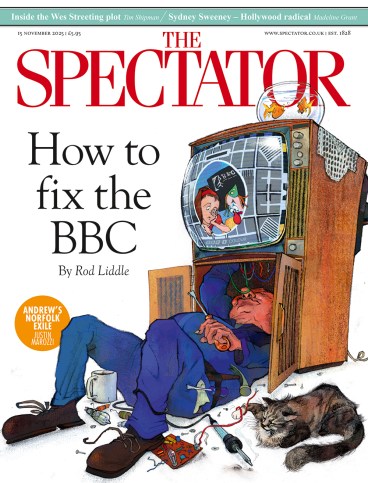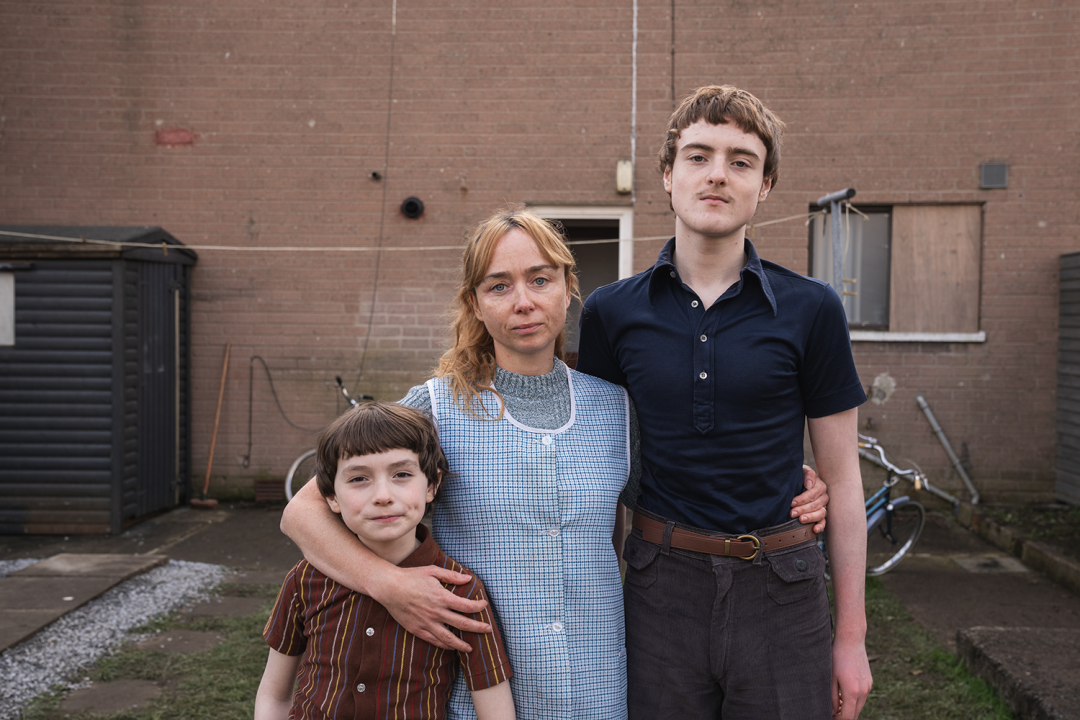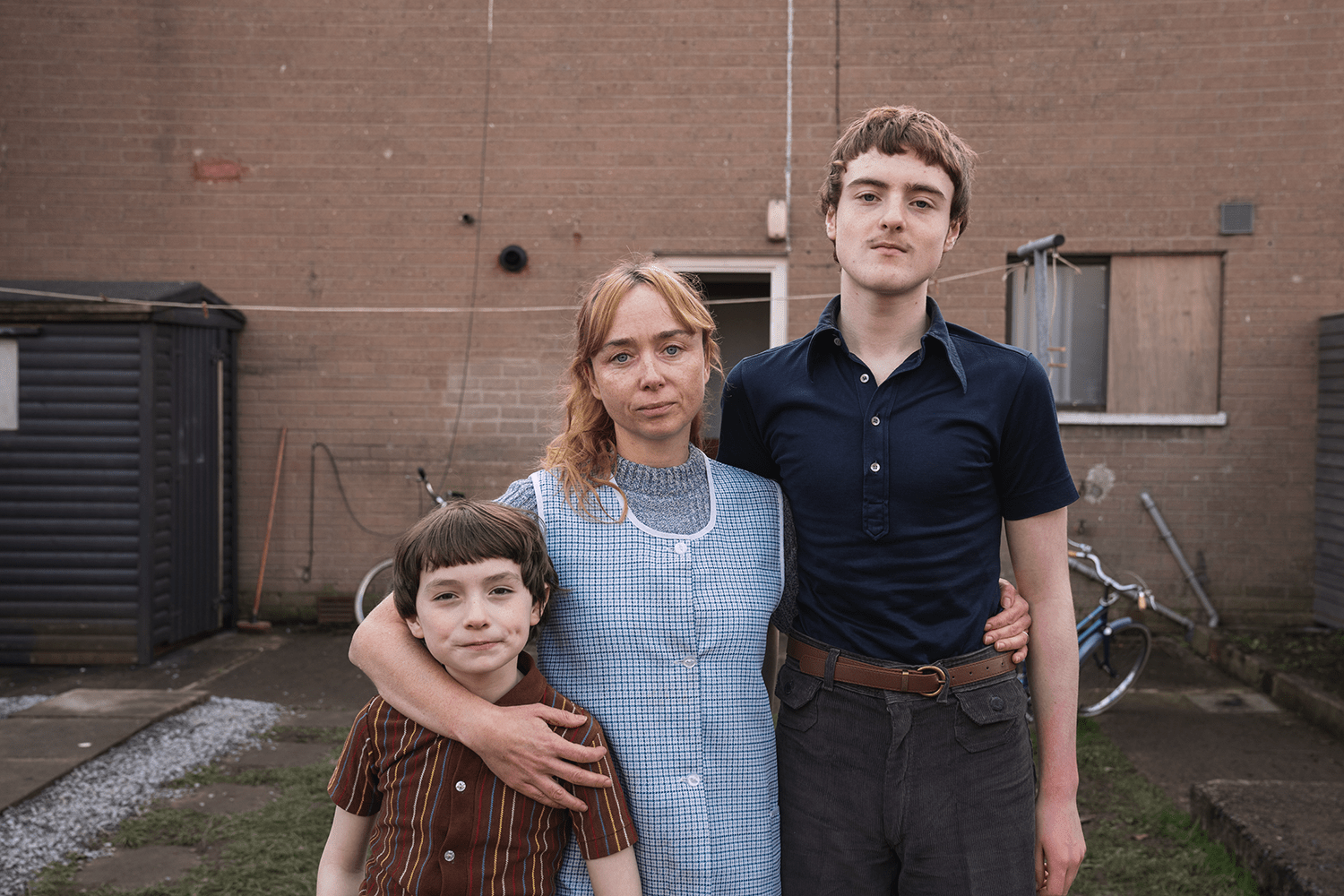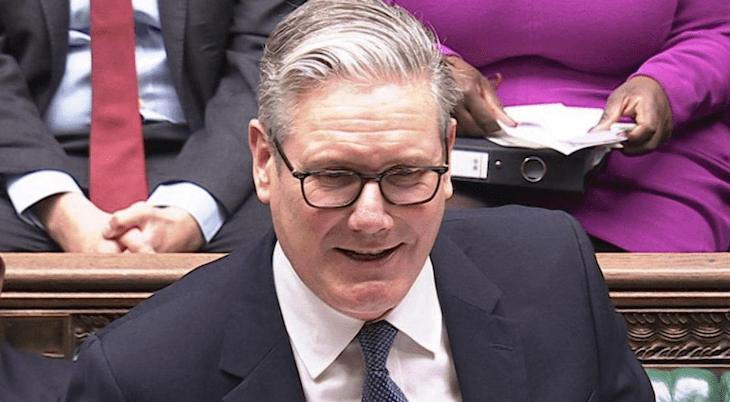
Yeats famously summarised Ireland in the four words, ‘Great hatred, little room’. But, as Louise Kennedy’s 2022 debut novel Trespasses showed, in 1970s Northern Ireland the hatred had grown even greater and the room even littler.
Channel 4’s faithful adaptation began – as it would continue over its four parts this week – with the suffocating omnipresence of sectarianism. As 24-year-old Cushla (Lola Petticrew) drove through her small town, everything she saw screamed Catholicism or Protestantism: the graffiti, the flags, the ash on children’s foreheads at the start of Lent.
By night, Cushla worked in a bar where the punters were either nervously or aggressively aware of each other’s religion. By day, she taught in a school where the priest warned pupils that ‘Loyalists are hungry for Catholic blood’ – and the headmaster didn’t hide his belief that ‘mixed marriages are an abomination’ from seven-year-old Davy, whose mother belonged to ‘the enemy’.
Worse still, the paranoia on both sides wasn’t misplaced. In episode one, Davy’s Catholic father was ferociously beaten up on the Protestant estate where he lived. When Cushla visited the family, her car was stoned and she was yelled at for being a ‘Taig’. Before long, Davy’s 18-year-old brother Tommy, hungry for blood himself, joined the IRA.
And, as Cushla discovered, there was no escaping this stuff in the bedroom either. Her discovery started when hunky fortysomething Michael (Tom Cullen) came into the bar. A well-meaning Protestant lawyer, Michael saw himself as the voice of reason, which perhaps he was, except that this was a time and place where reason was beside the point.
As part of his doomed plan to increase inter-community understanding, he asked Cushla to give Irish lessons to him and his well-heeled Belfast friends, allowing the programme to have some uncharacteristic fun with such signs of middle-class 1970s sophistication as taramasalata and Chianti in raffia bottles. Soon, though, Cushla’s appeal to Michael had moved beyond the linguistic – and, as the sex scenes piled up, their pillow talk duly took on a sectarian tinge too. (‘So it’s true then, Catholic girls are nymphomaniacs.’)
Channel 5 is the terrestrial broadcaster that seems happiest to embrace TV’s past
But their affair, of course, had to remain a deep secret. Again, Cushla’s terror of being tarred and feathered if it became known was clearly justified. Meanwhile, Michael was already a target for both factions: despised by Loyalists for defending Catholics in court and by Republicans for operating in court at all, thereby propping up an evil system.
So would there be a happy ending? The answer was the firmest of ‘no’s. Michael’s noble refrain was that ‘we can’t let the guys with guns tell us how to live’ and should instead choose ‘freedom over fear’ so that ‘love beats hate’. Yet in the end, it was hate, fear and the guys with guns that triumphed. Admittedly, there was a little present-day coda showing that peace has since come to Northern Ireland. But that didn’t do much – or seem intended to do much – to make Trespasses an ultimately cheerful watch. (Cushla, incidentally, also had a chronically alcoholic widowed mother, played with some relish by Gillian Anderson.)
It was, however, always a gripping one: relentless in the best way, and with its bleakness never feeling forced so much as entirely matter of fact, and therefore all the more jolting.
As I’ve mentioned before, Channel 5 is the terrestrial broadcaster that seems happiest to embrace TV’s past rather than bothering with any cutting-edge nonsense. Now it’s even revived Play for Today to bring us one-off dramas that were once such a television staple.
If memory serves (which it mightn’t), in its BBC days, Play for Today was generally Trespasses-like in its gloominess – but this appears to be a step too far for Channel 5, which opened the run with one of those jolly depictions of oldies that invariably recall Grandpa’s letter of complaint in The Simpsons: ‘I am disgusted with the way old people are depicted on television. We are not all vibrant, fun-loving sex maniacs. Many of us are bitter, resentful individuals who remember the good old days.’
In Never Too Late, Anita Dobson played septuagenarian Cynthia, first seen trying to pull blokes at a funeral. A couple of falls later, she was in a ‘retirement village’, where her next-door neighbour turned out to be Frank (Nigel Havers), with whom she’d sowed the last of many wild oats before marrying the dependable Kenneth.
So would there be a happy ending? The answer was the firmest of ‘you betcha’s. Now and again, the programme did try to inject a note of mild melancholy about chances not taken etc. – but not very hard or for very long. Despite Dobson and Havers being in stirringly good form, the predictability of pretty much everything meant that the new Play for Today got off to the flimsiest of starts.








Comments